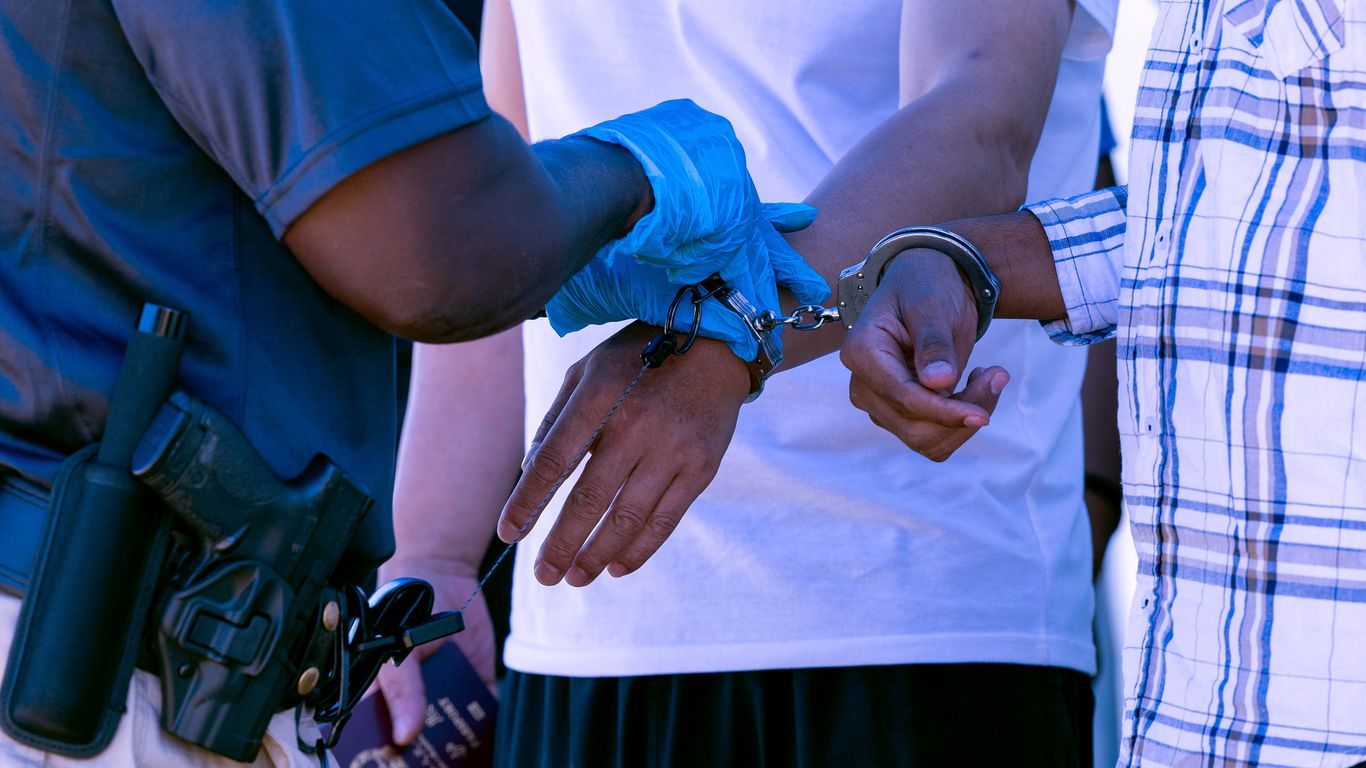Immigrants being removed under the Alien Enemies Act get 36 hours to challenge their deportations, the Trump administration said in a new court filing.Why it matters: This is the first time the administration has publicly responded to a Supreme Court decision requiring immigrants a chance to contest their deportations before they are removed from the country.The Trump administration has argued that invoking the Alien Enemies Act allows it to deport undocumented immigrants with little or not due process.
Zoom in: Immigrants being removed under the Act have at least 12 hours to say they would like fight against their deportations with a habeas petition, according to the court declaration from a Texas Assistant Field Office Director for Immigration and Customs Enforcement. From that point, the detainee then has at least 24 hours to actually file the paperwork.They're also given the opportunity to make a phone call.

The Supreme Court ruled that immigration officers must give immigrants being removed "reasonable time" to contest their removals. Zoom out: The Supreme Court halted removals under the Alien Enemies Act for some plaintiffs in an emergency ruling last weekend after a complaint that the immigrants in the case weren't being given enough time to take their objections to court.Catch up quick: A proclamation from President Trump allowed for Venezuelans who are alleged to be members of the Tren de Aragua gang and who are older than 14 years old to be deported under the Alien Enemies Act.
Almost 300 men have been removed from the U.S. with this authority and sent to a high-security prison in El Salvador, known as CECOT.
Most of them were sent to the prison before the Supreme Court ordered that the administration couldn't just remove them without notification and an opportunity to argue that they aren't gang members.And many of the men, through their attorneys and in court cases, have contested the accusations that they're gang members. And a recent investigation from CBS News found that 75 percent of them didn't have criminal records.
Representatives from ICE did not immediately respond to Axios' request for comment..
Immigrants deported via Alien Enemies Act must race the clock to contest removal

Immigrants being removed under the Alien Enemies Act get 36 hours to challenge their deportations, the Trump administration said in a new court filing.Why it matters: This is the first time the administration has publicly responded to a Supreme Court decision requiring immigrants a chance to contest their deportations before they are removed from the country.The Trump administration has argued that invoking the Alien Enemies Act allows it to deport undocumented immigrants with little or not due process.Zoom in: Immigrants being removed under the Act have at least 12 hours to say they would like fight against their deportations with a habeas petition, according to the court declaration from a Texas Assistant Field Office Director for Immigration and Customs Enforcement. From that point, the detainee then has at least 24 hours to actually file the paperwork.They're also given the opportunity to make a phone call.The Supreme Court ruled that immigration officers must give immigrants being removed "reasonable time" to contest their removals. Zoom out: The Supreme Court halted removals under the Alien Enemies Act for some plaintiffs in an emergency ruling last weekend after a complaint that the immigrants in the case weren't being given enough time to take their objections to court.Catch up quick: A proclamation from President Trump allowed for Venezuelans who are alleged to be members of the Tren de Aragua gang and who are older than 14 years old to be deported under the Alien Enemies Act. Almost 300 men have been removed from the U.S. with this authority and sent to a high-security prison in El Salvador, known as CECOT.Most of them were sent to the prison before the Supreme Court ordered that the administration couldn't just remove them without notification and an opportunity to argue that they aren't gang members.And many of the men, through their attorneys and in court cases, have contested the accusations that they're gang members. And a recent investigation from CBS News found that 75 percent of them didn't have criminal records.Representatives from ICE did not immediately respond to Axios' request for comment.















